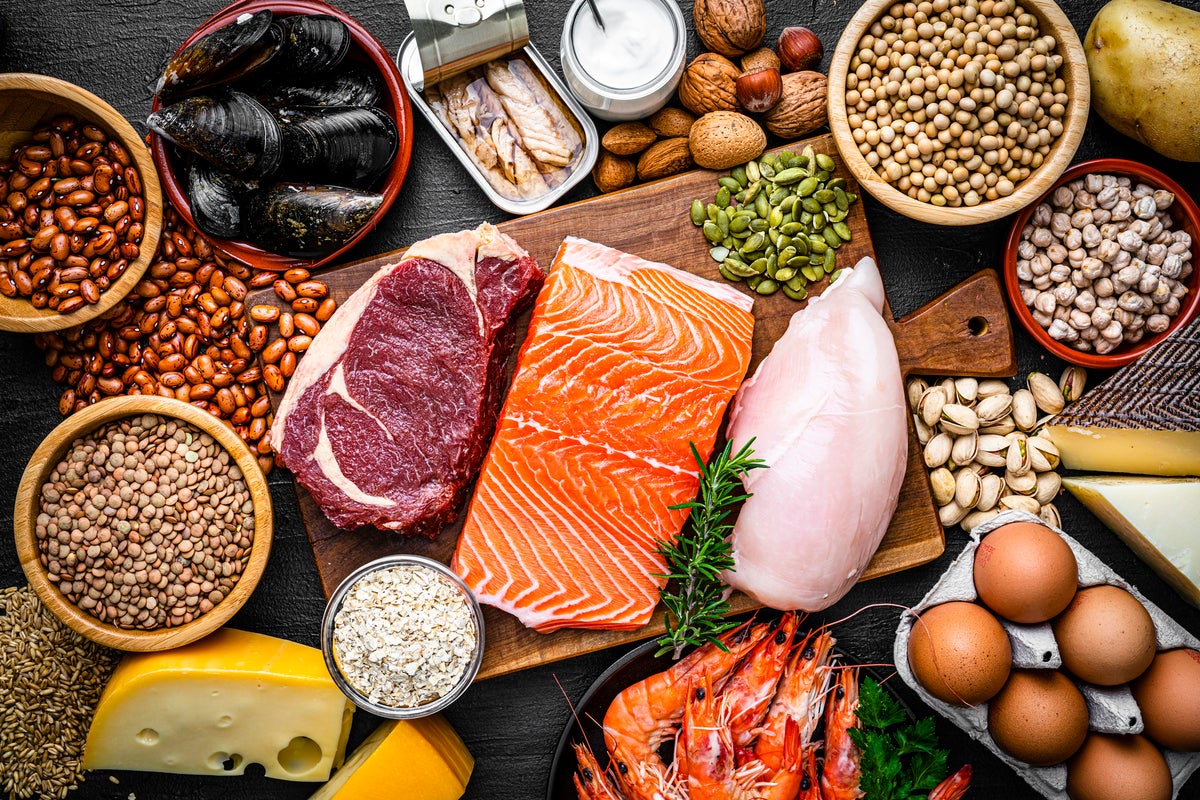T4K3.news
Experts identify five signs of protein deficiency
Knowing these signs can help improve your nutritional health.

Experts reveal signs indicating a protein deficiency in your diet.
Five signs you need to increase your protein intake
Protein is crucial for many bodily functions, yet many people may not realize when their intake is insufficient. Nutrition experts identify several key signs that suggest a need for more protein. Jessica Cording, a registered dietitian, emphasizes that feeling consistently hungry after meals can be a primary indicator of low protein levels. Cuts and scrapes that heal slowly may also signal a protein deficiency, as the nutrient is vital for tissue repair. Additionally, individuals struggling to build muscle despite regular weight training could be lacking in protein. Hair loss, although complex, might also be linked to inadequate protein consumption, as proteins play a critical role in hair follicle production. Finally, brittle nails are another surprising sign of a protein deficit since nails rely on keratin, a protein. Experts encourage making small dietary changes to increase protein intake gradually and spread it throughout the day for better overall health.
Key Takeaways
"Protein is an essential nutrient for so many bodily processes."
Jessica Cording highlights the importance of protein in health.
"If someone is constantly hungry, I'm always going to check to make sure they have enough protein."
Jessica Cording emphasizes hunger as a key sign of insufficient protein.
"Proteins are needed to support this constant turnover."
Dr Gary Goldenberg explains why protein is vital for hair growth.
"Increase it in an approachable way."
Experts suggest small changes to raise protein intake effectively.
The growing awareness of protein's role in health goes beyond traditional fitness circles; it is a dietary necessity that resonates with diverse audiences today. With increasing interest in nutrition, understanding these signs of deficiency highlights the importance of protein as not just a dietary choice but a health imperative. As more people adopt active lifestyles, the focus on adequate protein intake is expected to intensify. Failing to address individual protein needs could have broader implications, affecting physical health, performance, and even mental well-being. This shift in perspective may lead to increased public focus on protein sources and their accessibility.
Highlights
- If you're always hungry, check your protein intake.
- Slow wound healing may mean less protein in your diet.
- Hair loss could point to an inadequate protein supply.
- Brittle nails might signal a need for more protein.
Potential health risks from low protein intake
A lack of protein can lead to multiple health issues such as poor wound healing, muscle loss, and hair and nail problems. Ignoring these signs can result in chronic health conditions over time, prompting public concern about dietary guidelines.
Awareness of these signs can lead to better health outcomes.
Enjoyed this? Let your friends know!
Related News

Signs of Vitamin B2 Deficiency Explained

Growing rates of vitamin B12 deficiency reported in the UK

Signs of protein deficiency affect health and mood

Recognize Signs of Magnesium Deficiency

Warnings issued for Mounjaro users about undereating

Free activities can help reduce chronic inflammation

New pancreatic cancer early warning sign discovered

Experts recommend dietary changes for midlife health
